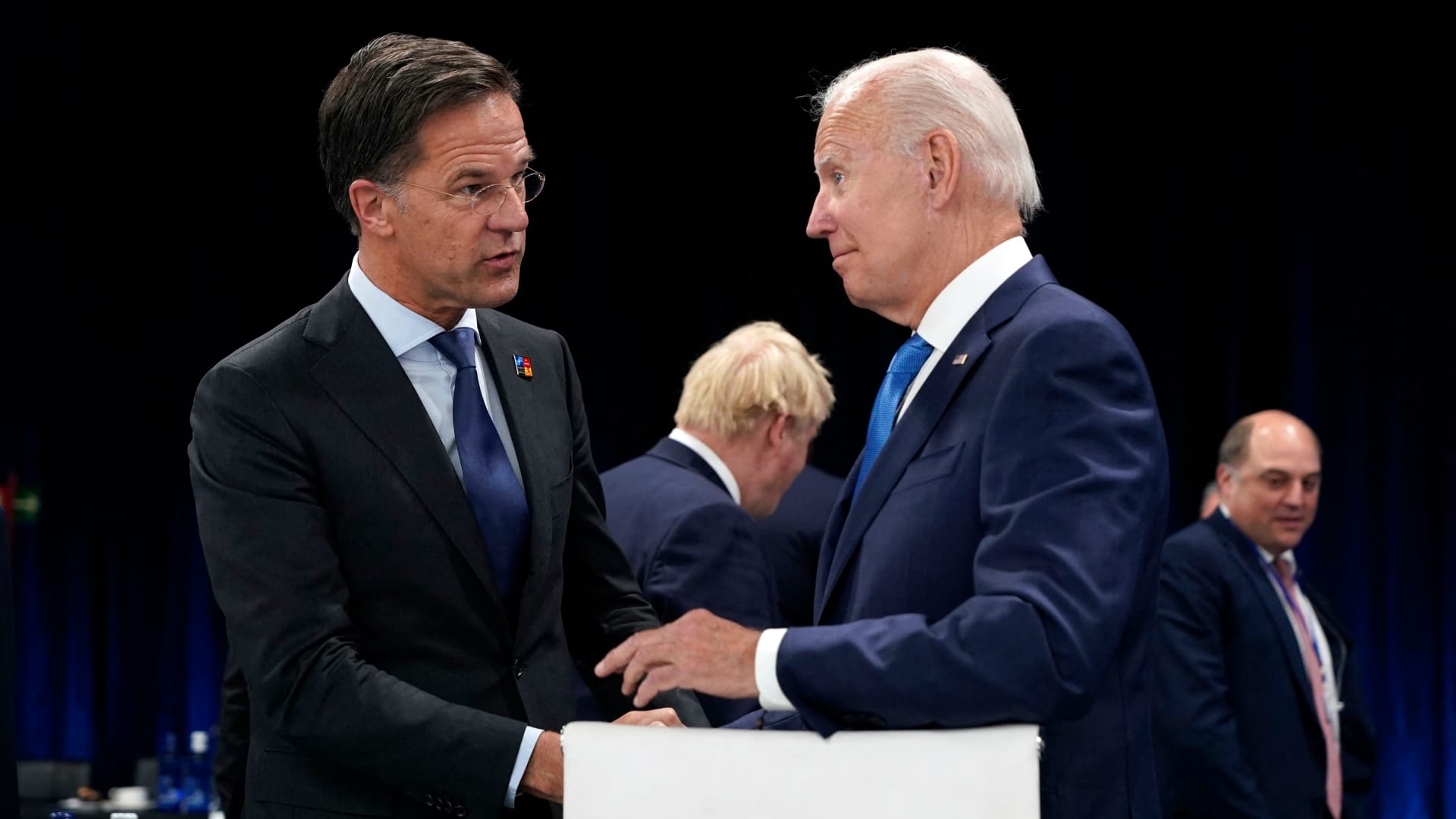Netherlands Prime Minister Mark Rutte engages in a conversation with U.S. President Joe Biden on June 29, 2022. The U.S. has been pressuring the Netherlands to restrict the export of high-tech semiconductor equipment to China.
Susan Walsh | AFP | Getty Images
The Netherlands has recently unveiled new export limitations on advanced semiconductor equipment following U.S. demands to prevent China’s access to crucial chipmaking tools.
The Dutch government has mandated that companies in the Netherlands will now require a license to export specific advanced semiconductor manufacturing equipment starting from September 1.
ASML, a prominent semiconductor company based in the Netherlands, is at the core of this development as it produces essential machinery for the production of advanced chips.
On Friday, ASML witnessed a 1.5% decline in its shares.
In October of the previous year, the U.S. implemented comprehensive regulations aiming to restrict the export of key chips and semiconductor tools to China, a move that experts believe could hinder Beijing’s efforts to strengthen its domestic technology sector. Since then, the U.S. has been exerting pressure on crucial chipmaking nations and allies, such as the Netherlands and Japan, to introduce their own export restrictions.
Due to ASML’s critical role in advanced chip production, the U.S. has sought the cooperation of the Netherlands. While the Dutch government was initially indecisive, it eventually outlined restrictions on the export of advanced semiconductor equipment in March. The recently announced rules provide more clarity on what can and cannot be exported.
The legislation does not specifically target any country or mention ASML explicitly.
According to the Dutch government, the rules apply to “a specific set of technologies related to the development and manufacturing of advanced semiconductors” that could potentially have military applications.
Liesje Schreinemacher, the Dutch Trade Minister, stated, “We have taken this step on the grounds of national security. It is important for the affected companies to understand what they should expect. This will allow them sufficient time to adapt to the new regulations.”
ASML caught in the middle
ASML’s machines are utilized by advanced chip manufacturers like TSMC for their production processes. The company produces two key tools.
The first tool is known as an immersion deep ultraviolet (DUV) lithography machine, primarily used for manufacturing memory chips. These chips are essential components in various devices, ranging from smartphones to laptops and servers, and they could potentially be utilized for applications related to artificial intelligence.
The second tool is called an extreme ultraviolet (EUV) lithography machine, used for producing more advanced chips.
ASML has acknowledged that it will now need to apply for a license to export its most advanced immersion DUV lithography systems, such as the TWINSCAN NXT:2000i and subsequent tools.
Since 2018, the Dutch government has already implemented separate regulations to restrict the export of ASML’s EUV machines. However, these exports will now fall under the law that becomes effective in September.
ASML clarified that it can begin submitting export licenses prior to the law taking effect, and the government will evaluate these applications on a case-by-case basis.
The company also mentioned that it does not anticipate any significant impact on its 2023 financial outlook as a result of the measures announced on Friday.
Denial of responsibility! VigourTimes is an automatic aggregator of Global media. In each content, the hyperlink to the primary source is specified. All trademarks belong to their rightful owners, and all materials to their authors. For any complaint, please reach us at – [email protected]. We will take necessary action within 24 hours.


